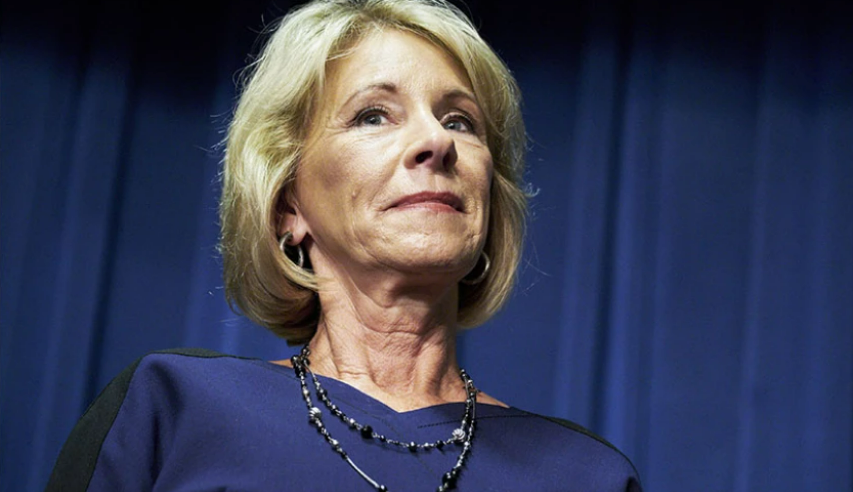
Editor’s note: Former U.S. Secretary of Education and longtime education choice champion Betsy DeVos is promoting her new book, “Hostages No More: The Fight for Education Freedom and the Future of the American Child,” which is set to be released on June 21. DeVos recently sat down with her former education department colleague, Denisha Allen. A former state scholarship student, Allen now serves as the director of public relations and content marketing at the American Federation for Children, a national organization that DeVos helped found and chaired before becoming education secretary in 2017. DeVos recalls how she first became interested in the idea of education choice as a young mother of a kindergartener. She also discusses how advocates have approached the issue over the years, how she worked promote education freedom while serving as education secretary, and how the pandemic pushed it to the forefront of parents’ concerns. She also talks about what she hopes readers will learn from the book. Here are some excerpts from the interview.
How DeVos became involved in the education choice movement: My oldest son, Rick, who is now 40 years old, was starting kindergarten. My husband, Dick, and I knew we were going to be able to send our children to whatever school we felt was best for them. So, we were shopping around visiting schools and discovered this amazing little Christian school serving the kids of the neighborhood around there. They had to raise 90 percent of their operating funds every year. Everyone who attended paid what they could. So, I started getting involved in that school, and the more I was there, the more I realized that there were multiple families who would have loved to have their kids in a school like that. So, I started, as we all did…we started trying to make the case to appeal to people through logic or through the lawyerly approaches or the legal side of the case as the reasons for granting education freedom and school choice and quickly realized it was going to take a lot of political muscle as well. And so, those things have developed over the last 30-plus years. But it was solely with a commitment to bringing policy into being in as many states as possible to allow families the kind of freedom they need to find the right fit for their children.
How the pandemic allowed education choice to take center stage: I think the last two years have really laid bare many of the challenges that many of us, if not all of us, have seen during the last number of years in a way people never anticipated. Whether it was lockdowns, mandates, curriculum issues, lack of rigor or a lack of actually learning anything, any number of issues have really brought the whole possibility of education freedom to a whole new level.
Why a book and why now? I didn’t set out to write a book and probably wouldn’t have if not for what unfolded the last couple of years. But again, I think it has really brought attention to the whole issue of education in a way that we couldn’t have anticipated. As you know, all of our focus while we were (in the Department of Education) has been on doing the right thing for students, and all activities were centered around highlighting different schools or different approaches that were bringing unique opportunities to students. The whole notion of rethinking education and the old institutional notion of one-size-fits-all approach, a lot of that work really helped lay the ground in many ways for the discussion we’re having today about bringing broader education freedom to those across the country. So, the book is my way to talk about how we fix education in America, and it brings into it the stories of lives that have been changed and kids who are on a totally different path because of these opportunities, and I hope it helps correct some of the mischaracterizations of my time in Washington and all of us who are involved in offering these types of opportunities through policy to kids in all states.
What is DeVos’s main message to readers? I hope that (readers) will take away the notion that education freedom is something we have got to move toward for every student in this country. By education freedom, I should probably give my definition of what that means. I used to talk about school choice, and school choice was and still is a good description of what we’re talking about, but I don’t think it’s broad enough. When we think of school choice, we think of buildings, and I don’t think we have to think of only buildings. We need to think creatively about how kids can experience learning in their K-12 years in ways that we haven’t begun to dream of. And frankly, lots of people have been exploring that during the last two years with all of this COVID reality. So, you have families that have been banding together to in small homeschool consortiums have may become a micro-school. You have individuals who are customizing their education…education freedom, I think provides a new moniker or banner of what school, of what education, could be. I hope people will take away tools they can use to advance this in their own communities and their own state and on behalf of their own children, and I hope it will really encourage policy change to empower families to do just that.



[…] This article originally appeared at reimaginED. […]